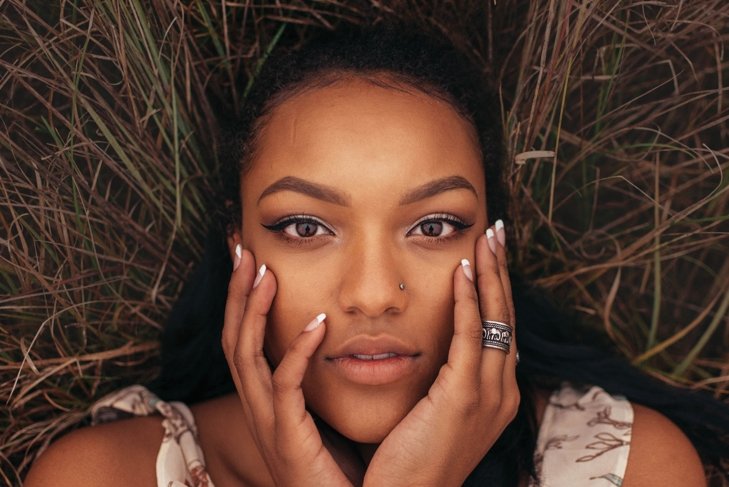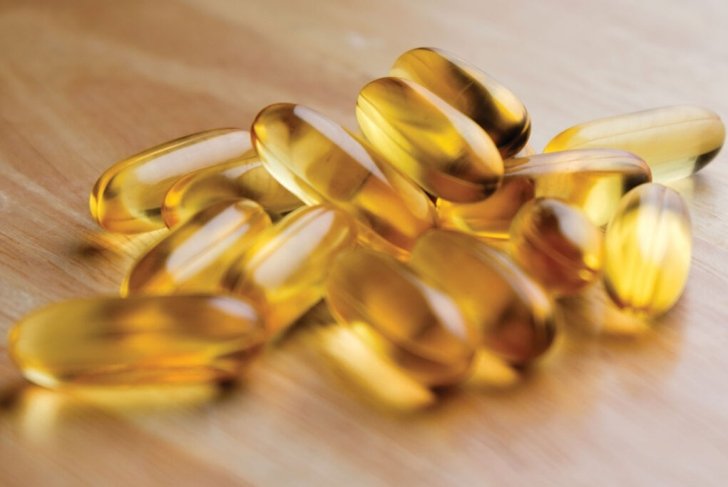
It’s an exciting time in the world of natural beauty, with people everywhere flaunting what makes them unique. Learn why embracing our natural beauty—so-called “flaws” and all—is possible and powerful.
It’s an exciting time in the world of natural beauty, with people everywhere flaunting what makes them unique. Here’s why embracing our natural beauty—so-called “flaws” and all—is possible and powerful.
A paradigm shift
We all know that beauty is in the eye of the beholder, and what’s considered beautiful in one culture doesn’t necessarily translate to another. But society’s messages are strong, and being told that a particular feature isn’t attractive can take its toll.
Thankfully, whether it’s social media, new perspectives from beauty companies, inspiration from other countries, or simply an idea whose time has come, there seems to be a trend toward embracing our natural beauty. It’s refreshing and empowering to realize that rather than covering up our flaws, we can celebrate what makes us different.
Imperfections to love
If you’ve got it, flaunt it! Here are just a few previously considered “flaws” that are now being embraced.
Freckles and birthmarks
Forget matte finishes—these days, freckles are so sought after that people are even drawing them on. To embrace your own, choose a sheer, tinted moisturizer or BB cream rather than a heavy foundation.
When it comes to noticeable birthmarks, there’s also no need to hide. Cait Dixon knows this all too well with her own birthmark. “It is small and close to my eye in winter,” she explains, “but with summer sun exposure it extends down my cheek. It often gets confused with a black eye or a huge mascara smudge.”
It hasn’t always been easy for Dixon to embrace. “It took time for me to accept me for me, birthmark included. I would get super embarrassed when people asked about it, especially when they thought I was just sloppy with makeup. But it makes me unique, and I’ve come to love it.”
These days, other than being careful with sunscreen, she doesn’t bother to cover it up. “What matters is that you feel comfortable,” says Dixon. “If you love your birthmark and embrace it, rock it!”
Natural skin colour
From dangerous skin-lightening creams to cancer-causing tanning beds, many people try to change their natural complexions. But whatever your natural skin colour, it’s beautiful.
Today, there are many natural makeup shades for everyone, including those with deep skin tones. Paler than pale? Celebrate that too! To preserve your complexion and help prevent skin cancer, wear a mineral sunscreen.
Bare skin
The #nomakeup #nofilter movement is going strong. Made famous by celebrities such as Alicia Keys (and followed by others such as Jennifer Lopez, Gwyneth Paltrow, and Katie Holmes) many are embracing their own fresh-faced complexions.
Here, a great skin care routine is key. If you’re not sure where to begin, ask for product recommendations at your natural health retailer. Beauty department staff will be able to suggest cleansers, toners, moisturizers, and treatments suited for your skin type—without harmful chemicals.
A psychologist’s top tips
Dr. Maureen Whittal is a Vancouver-based psychologist who specializes in cognitive behavioural therapy. Here’s her advice.
Understand that “perfect” doesn’t exist.
“From my perspective,” Whittal explains, “we can’t discuss perfect without identifying the detrimental nature of striving to get there. The more we focus on perfection, the more aware we become of imperfections, which sets up a vicious cycle.”
Change how you use mirrors—step back and stop scrutinizing!
“What we see when we look in the mirror depends on the distance we are from the mirror,” says Whittal. Since whatever we focus on increases, when we get too close and analyze a so-called flaw, “the importance and severity of the flaw will grow.”
One trick is to only use the mirror “as a source of information, as in, ‘Is there something in my teeth?’” and then move on.
Recognize when there’s a larger problem.
“If avoidance becomes the norm and this avoidance begins to impact the person’s life—either socially or vocationally—then it might be time to consider a referral for BDD [body],” explains Whittal. Regardless of the severity of the problem, “please understand that it is treatable.”
Natural beauty glossary
Body positivity
This movement celebrates beauty of all shapes and sizes, fighting ideas of self-hatred and instead fostering joyful self-care.
Wabi sabi
This Japanese philosophy of seeing beauty in imperfection can help us remember that a society’s connotation of perfection isn’t worth striving for.
#flawsome
Hop onto social media to explore this fun trending term. Flawsome refers to embracing your flaws and understanding that you are still awesome.
Unruly hair
When Rebecca Karpus was a little girl, she hated her wild, curly hair. She’d try to calm it with water, hair gel, and, when she was older, straightening irons and smoothing products. Eventually, she explains, “it became so expensive and time consuming that I decided to go natural. First, I quit dyeing my hair, and then I cut it to emphasize the curl. I eventually added a fringe bang, which looks really cute! Finally, I love my hair.”
Karpus’s advice for others? “Don’t assume that showing the real you is the ugly or wrong choice. I feel more beautiful than ever, and it’s just because I took a chance to see my true self!”
Rather than straightening your hair into submission, try a low-maintenance hairstyle. Take a trip to your hairstylist to discover looks that emphasize your natural hair texture, then visit your natural health retailer for products formulated for air drying.
Under-eye circles
The French believe that dark eye circles are beautiful and mysterious. C’est vrai! Skip the concealer and invest in a good natural eye cream with hydrating ingredients such as hyaluronic acid. Of course, if there’s an underlying issue such as chronic lack of sleep, consult your health care practitioner.
Body hair
Sick of shaving? You’re not alone. Many people find hair removal irritating, leading to ingrown hairs or inflammation. The good news is that going au naturel can be extremely empowering, with many women tossing their razors altogether.
If you’re considering doing the same, remember that shaving helps to exfoliate, so you may want to exfoliate your armpits and legs every so often to prevent flaky skin.
Eco-friendly, microbead-free exfoliants can be found at natural health retailers. Avoid harsh ingredients such as crushed nut shells, and instead choose one made from jojoba beads or fruit enzymes. Then follow up with a lotion filled with nourishing oils.

Supplements for skin health
Many natural health products can be used to help achieve healthy skin. Here are a few.
Essential fatty acids
Although more studies need to be done, researchers suspect that DHA (docosahexaenoic acid, found in fish oil) and evening primrose oil may help those with eczema.
Probiotics
Research is in its infancy, but scientists and dermatologists alike are excited by the potential benefits of healthy bacteria to help rebuild the skin barrier, treat dermatitis, fight acne, and heal wounds.
Curcumin
This compound, found in the famed curry spice turmeric, may offer anti-inflammatory and antimicrobial skin benefits. Again, researchers are still testing this fascinating hypothesis.













